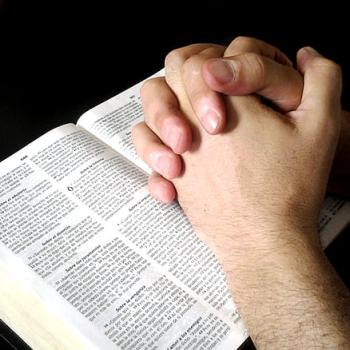April 12th is the 150th anniversary of the beginning of the Civil War at Fort Sumter in Charleston, South Carolina. The Civil War was our national cataclysm, with levels of carnage that still boggle the mind. The Battle of Antietam, for instance, remains the deadliest day in American history, with its 6,600 dead and mortally wounded more than doubling the number who perished in the terrorist attacks of September 11, 2001. Overall about 620,000 soldiers died in the war.
Was the Civil War a war of religion? We know that pastors and laypeople on both sides of the Civil War used faith to justify the war and its enormous drain on American lives and treasure. No one has mapped the role of faith in the Civil War so thoroughly, however, as George Rable in his magisterial God's Almost Chosen Peoples: A Religious History of the Civil War.
Coincidence led both Rable and me to publish religious histories in 2010 of the two most formative wars in American history, the American Revolution and the Civil War. Rable argues that Americans' common religious mindset made their political differences intractable. Americans across regional and confessional lines assumed that God was providentially shaping the sectional conflict to purify the nation.
Indeed, the notion that Providence was guiding the unfolding crisis was about the only thing on which North and South could agree. And that providential mindset could "harden into a conviction that God's views on these questions coincided with one's own," Rable writes, even to the point of sanctifying killing. One Alabama Methodist preacher wrote of his "deep christian and inextinguishable hatred toward the demons of the north." He thought it was "doing God's service to kill the diabolical wretches on the battlefield."
This kind of conviction made reconciliation impossible prior to the war, and it helped prolong the bloodshed long after the South's fate was decided. Ironically, providential conviction had united the Patriots in 1776, as colonists across the theological spectrum believed that God was raising up America as the new bastion for liberty. In one war, belief in Providence united Americans, and in the other, it divided them.
But if you view the Revolution as another civil war, the religious histories of the two conflicts look more alike. In the Revolution, Americans fought against Americans as the Patriots seceded from the British Empire. Many American Loyalists hoped that God was on their side against the Patriot rebels, and after the final battle at Yorktown, Virginia, in 1781, they experienced the same dark disappointment as Confederates did eighty-four years later.
In 1861, Abraham Lincoln hoped that reverence for the union and the "better angels of our nature" would keep Americans together. Four years later, in his Second Inaugural Address, he staked national reconciliation on a chastened view of God's providential purposes in the war:
Fondly do we hope—fervently do we pray—that this mighty scourge of war may speedily pass away. Yet, if God wills that it continue, until all the wealth piled by the bond-man's two hundred and fifty years of unrequited toil shall be sunk, and until every drop of blood drawn with the lash, shall be paid by another drawn with the sword, as was said three thousand years ago, so still it must be said 'the judgments of the Lord, are true and righteous altogether.'
To Lincoln, the war was God's judgment on the nation (not just the South) for indulging slavery.
In American history, civil spirituality—seeing God's hand in national affairs—is problematic but deeply needed. War draws it out more than anything else. In times of calamity, we must believe that God has his purposes, and that he will set everything right in the end.
As I recently argued in USA Today, America can and should stand for righteousness at home and abroad, but doing so is tricky; it requires that we maintain enough critical distance from what the nation is doing to assess its actions morally.
Lincoln was certainly able to do that with regard to slavery. But what of the slaughter of troops that Lincoln and his generals sanctioned, especially in 1864? At Cold Harbor, Virginia, for example, a pointless frontal assault on Confederate defenses led to 7,000 Union casualties in about an hour. General Grant knew that he could replace the missing, wounded, and dead, and that General Lee couldn't.
Used uncritically, providentialism can transform into the cocky assumption that whatever America is doing is right. As we intervene in Libya, and as our troops remain in Iraq and Afghanistan, we should remember these cautionary notes from the religious history of our most devastating war.
4/5/2011 4:00:00 AM





